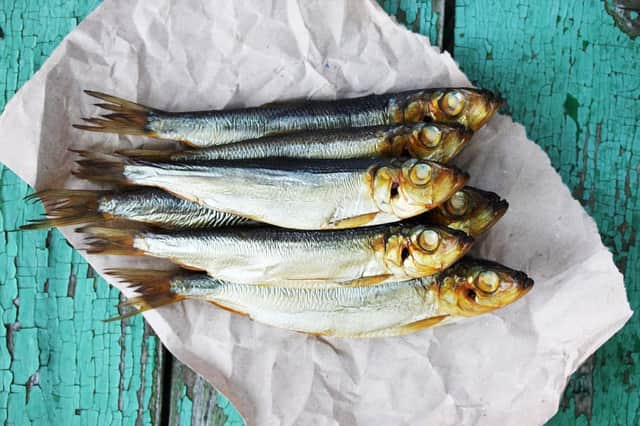Eating oily fish could half the risk of kids developing asthma - according to a new study


Children who carry a certain gene could halve their risk of asthma by eating oily fish, according to a new study.
By eating at least two portions of fish a week, many kids can reduce their likelihood of developing asthma by 50 per cent, between the ages of 11 and 14.
Advertisement
Hide AdAdvertisement
Hide AdHowever, the study only demonstrates that this is likely to occur in children who carry a version of the fatty acid desaturase (FADS) gene. Just over half the population is thought to carry the relevant variant gene, meaning the findings could have widespread implications.
What are the implications of this study?
Reducing the number of children and adults with asthma would provide major benefits to public health, as well as helping to bring down healthcare costs. The NHS currently spends around £1 billion per year on Asthma-related care.
Scientists believe that a diet relatively heavy in fish can boost long-chain omega 3 levels, which could protect against asthma by reducing inflammation in the airways.
By monitoring different groups of children over time - and asking some to eat the equivalent of two adult portions of oily fish per week, and some to eat hardly any - scientists found that those who ate the most fish were half as likely to develop asthma as those who ate very little.
Advertisement
Hide AdAdvertisement
Hide AdWhile fish is recommended generally, oily variants of fish are thought to be more effective in this regard, and are widely acknowledged to be healthier.
Fish like salmon, sardines and mackerel are oily, whereas cod, haddock and white fish are not - although they are still relatively healthy, especially when compared with red meat or processed foods.
‘Poor diet may increase asthma risk’
Some experts suggest that smaller, shorter-living fish tend to be better for consumption, as they have less opportunity to ingest and store micro-plastics and metals which build up in the ocean and can have detrimental health impacts.
Clinical professor of respiratory epidemiology at Queen Mary University of London, Seif Shaheen said: “It is possible that a poor diet may increase the risk of developing asthma, but until now most studies have taken snapshots, measuring diet and asthma over a short period of time.
Advertisement
Hide AdAdvertisement
Hide Ad“Instead we measured diet and then followed up children over many years to see who developed asthma and who didn’t.”
The study was carried out on around 6,000 children, with most from the southwest of England, and around 2,000 in Sweden.
Researchers found that the children who ate more fish tended to come from wealthier families and have healthier diets overall.
Previous studies have found that taking processed meat out of your diet and replacing it with fish can significantly reduce that risk of early death, by up to 25 per cent.